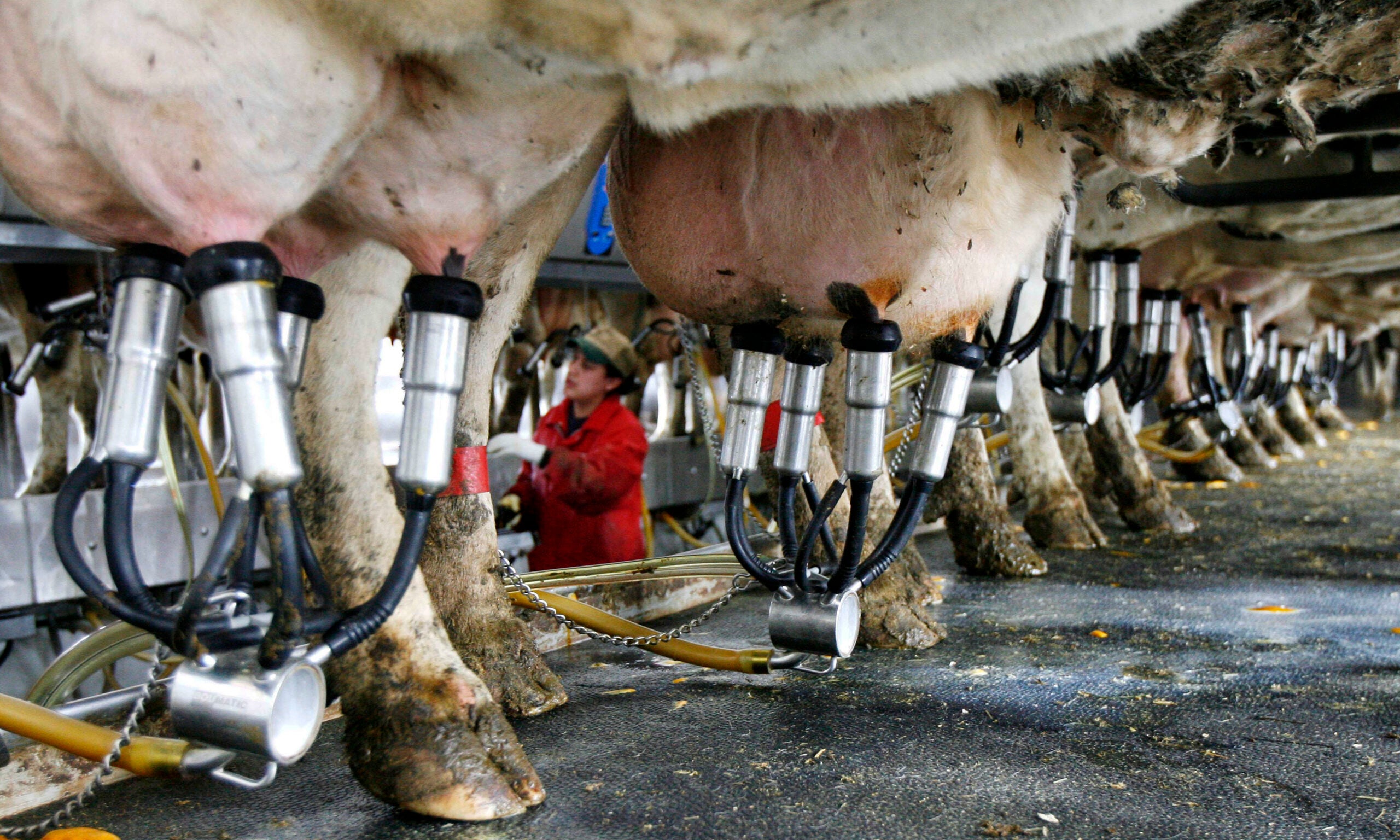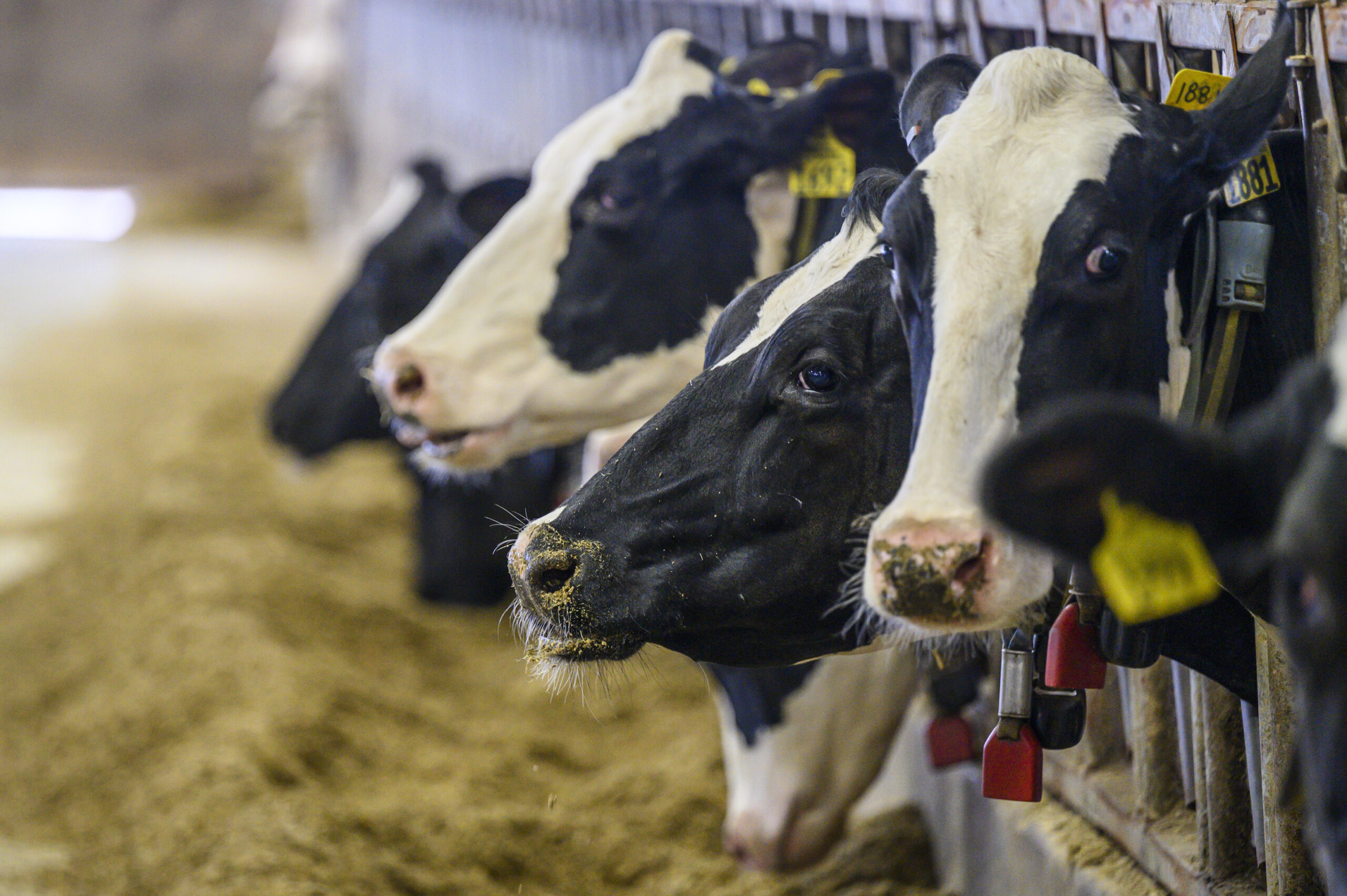A Wisconsin congressman has created a plan aimed at boosting the state’s dairy industry by focusing on immigration policy and global trade. He talks about why he thinks the plan will work, and discusses the chances of it making it through Congress. We also look at why a legal expert says gay, lesbian and transgender Americans are treated ‘less-than-whole’ citizens, and learn about the history of Jewish people in Wisconsin.
Featured in this Show
-
New Plan Looks To Help Wisconsin Dairy Farmers With Trade Agreements, Immigration Reform
U.S. Rep. Ron Kind is looking to take on immigration reform and global trade as part of a new plan to stabilize Wisconsin’s dairy industry.
“Our dairy farmers are struggling,” Kind said. “We’re looking at pretty low commodity prices. Their profit margins have been squeezed while their fixed costs have gone up.”
Wisconsin needs a comprehensive strategy to see dairy farmers through low dairy prices and give them the opportunity to stay in business in Wisconsin, according to Kind.
Kind, a La Crosse Democrat, represents Wisconsin’s 3rd Congressional District, which is located primarily in the southwest and western regions of Wisconsin, where the dairy industry is the backbone of the economy.
The Dairy Action Plan, details of which were released this week, aims to “fix some of the problems that dairy farmers currently face and provide some relief for the drop in dairy prices,” Kind said.
The plan also looks to builds on existing programs that encourage the next generation of dairy farmers and expand agricultural research.
Dairy brings in about $43 billion annually and about 79,000 jobs, making it not only the state’s most iconic industry, but one of its most profitable, he said.
If Wisconsin were allowed to export cheese and other dairy products to new markets, those figures would be even better, Kind said.
“Right now we’re being shut out entirely in Russia and India,” he said. “That’s leading the European Union to dump dairy in the global market, which is driving down prices for our dairy farmers.”
Kind sees an opportunity to expand trade opportunities in the Pacific Rim area, as well as lowering tariff barriers to our agricultural products, in general, but particularly dairy.
“We’ve got to be in that market competing with a level playing field,” Kind said.
The Trans-Pacific Partnership would immediately remove thousands of tariff barriers that are making it more expensive for Wisconsin and the U.S. to export products, Kind said. The trade agreement would create a more habitable business climate here at home.
“If we fail to move forward on this trade agreement, China will,” he said. “China is on our heels. They’re talking to the same countries and telling them, ‘Don’t listen to those Americans. They’re asking too much when it comes to worker rights, environmental standards and human rights standards. Come to us. We don’t care about that.’ That’s the real jeopardy we face,” Kind said.
Kind highlights immigration reform as the other key part of the dairy plan.
It’s obvious that the country’s immigration system has been broken for some time now, and it’s long overdue for Congress to take action, Kind said.
The number one concern Kind hears from dairy farmers in his home district is finding and retaining a reliable source of labor, he said.
“Forty percent of farm labor now in Wisconsin is immigrant based,” Kind said. “We’ve got to recognize that and the huge economic impact that has.”
Immigration reform should allow for a lawful entry program and agriculture visa programs to help workers stay on dairy operations, Kind said.
-
Representative From Wisconsin Calls For Global Trade And Immigration Reform To Boost Dairy Industry
Wisconsin Congressman Ron Kind (D-La Crosse) who represents Wisconsin’s 3rd District recently announced a plan to boost and stabilize the state’s dairy industry. Amid falling profits for Wisconsin dairy farmers because of a dairy surplus, the plan encourages global trade, and also calls for immigration reform given that a large fraction of Wisconsin farms depend on immigrant labor.
-
Beyond Legal Same-Sex Marriage: Author Says LGBT Americans Are Still 'Fragmented Citizens'
We live in an era of considerable advancement and change for LGBT rights…but a legal expert says that gay, lesbian and transgender citizens are still too often considered as ‘less-than-whole’ citizens…and are lacking full legal protections against various forms of discrimination. He discusses what it’ll take to make American institutions recognize LGBT individuals as full and complete citizens.
Episode Credits
- Judith Siers-Poisson Host
- Veronica Rueckert Host
- Rob Ferrett Host
- Haleema Shah Producer
- Chris Malina Producer
- Representative Ron Kind Guest
- Stephen Engel Guest
Wisconsin Public Radio, © Copyright 2025, Board of Regents of the University of Wisconsin System and Wisconsin Educational Communications Board.



